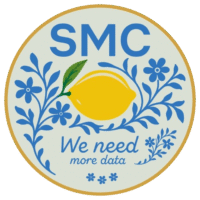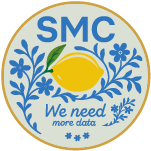
From Palatable to Powerful
Ending Code Switching in Philanthropy
What Code Switching in Fundraising Looks Like
The standard in grant writing is that the vocabulary used has always catered to the biases of philanthropists, while more muted and indirect language is used when discussing restorative justice policies. Stronger words are often switched out for a softer more palatable tone instead of a passionate and honest one, altering core values to appear less radical. These tendencies in grant writing are born out of a desire to appeal to funders to increase opportunities for organizations to receive the financing they desperately need, but the use of such language reinforces the same inequality that is meant to be corrected. “Code-Switching”, which is the censoring of specified language to prioritize amiability, is a common practice which ultimately minimizes the root causes of oppression.
Code Switching can be swapping “abolition” for “justice reform” to seem more palatable, but downplaying anger, resistance, or cultural pride to sound “neutral”. This extends to using funder jargon that doesn’t match a community’s language in order to shrink a problem to fit a logic model rather than addressing root causes. The role of language in grant writing is to convey the nature and severity of a sociological problem. Code switching downplays or blurs the reality of a given situation making the circumstances seem less dire by choosing a softer language or obscure meaning to avoid more accurate but socially charged terms.
Fundraising Rooted in Truth
At SMC Consultants, developing grant proposals that communicate the true intentions of our clients is simply the bare minimum. In order to accurately convey the need being addressed by underfunded communities, charity programs and so many others, grants must accurately and fully describe the nature of the problem at hand. Without honesty there is no addressing the unmet need or the true mission of organizations needed to bring them to light. The most impactful proposals do not hide the identity of the organizations served, they center it. Through using accurate and precise terms to express the depth and the nature of the problems our organizations seek to address, SMC crafts honest, informative, and compelling proposals.
SMC creates grants by leading with authenticity, rather than hiding. We elevate the client’s authentic voice and cultural framework and align your values with funder priorities without dilution, using movement-aligned, anti-racist language that still wins grants. We reframe funder “asks” as opportunities for education, not appeasement. It is important to build present logic models and theories of change that reflect real community work, not just sanitized metrics. SMC has helped several BIPOC-led organizations with major funding by leading with their values—not tucking them in at the end.
What Funders Are Actually Looking For
The standard for grant writers has changed over time. More funders are beginning to see the error in censoring the opinions and values of the organizations that seek financing from them. Often philanthropists and funders closely analyze grant proposals for a compatibility of values. Funders want to know that their investment is specifically and effectively targeting meaningful causes and that organizations that seek their resources fully understand the nature of the systemic issues they aim to address. It is important, now more than ever, that the programs that the organizations plan to implement are well designed and effective in addressing the need at hand. The effectiveness of a program’s design is dependent on the organization’s leadership to understand the social ill they wish to address. Using clear and accurate language and avoiding code switching has come to reflect a higher level of connectivity and understanding.
Funders are seeking community-rooted organizations with lived expertise. They want to work with grantees who are honest about systemic barriers. When reading grant proposals, funders are seeking stories that reflect real struggle and strength—not saviorism. The suggested programs that address power, not just symptoms, and reflect a deeper understanding of the issues at hand and how to work towards solving them. To that end, language and tone need to show clarity and courage, not compromise. Ending “Code Switching” must be a joint venture between grant writers and funders in order to work towards prioritizing truth and effectiveness over comfort.
About Us
At SMC, we partner with organizations on the frontlines of change. We’re not consultants who write reports and disappear—we’re embedded thought partners who bring strategy, storytelling, and infrastructure support when it matters most.



